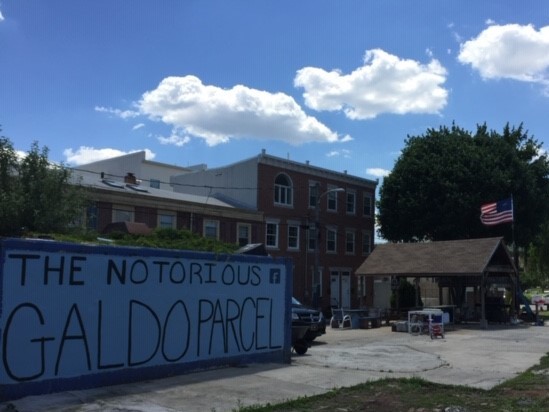The City of Philadelphia v. Galdo
Frank Galdo owns a home in the Fishtown section of Philadelphia. Since 1989 Galdo cleaned up, maintained and used a vacant lot across the street from his home that had been condemned by the City in the 1970s when rerouting the Market-Frankford Elevated line during the construction of Interstate 95. When the City tried to take back the lot in 2013, Galdo, represented by David J. Scaggs, Esquire, claimed ownership of the lot through adverse possession, a legal theory that permits a claimant to obtain title to land through actual, continuous, exclusive, visible, notorious, distinct and hostile possession for a period of twenty-one years. At trial, the trial court held that the City was immune from adverse possession because the City acted as an agent for the Commonwealth when it condemned the property and because the condemnation was evidence that the City obtained the property for a public use. The Pennsylvania Commonwealth Court disagreed and vacated the trial court's decision, finding that the City had not acted as an agent of the Commonwealth because the City had no legal obligation to hold the property as an agent of the Commonwealth during the time Galdo adversely possessed the property. The Commonwealth Court also found that simply holding a property for resale did not constitute a public use. The Pennsylvania Supreme Court recently affirmed the Commonwealth Court. The City abandoned its argument that it acted as an agent of the Commonwealth and focused solely on its public use argument. The Supreme Court recognized that a political subdivision may be immune from adverse possession if the land is devoted to a public use. However, it found that although the subject property was acquired on the basis of public use of the construction of a state highway, the City had abandoned the public use once the construction was complete in the late 1970s. The Court denied the City's argument that its intention to resell the property extended the original public use, finding that such reasoning was unsupported by any legal precedent and antithetical to the policies underlying the doctrine of adverse possession, stating "This scenario constitutes the opposite of devoting property to a public use as the indefinite holding of abandoned municipal property is detrimental to those tax payers who own property nearby and to the community at large." Read a copy of the Pennsylvania Supreme Court's Decision here.
After the case was sent back to the trial court, the trial court granted judgment in favor of Galdo for adverse possession of the entire Galdo Parcel, detailing all the various uses that Galdo made of the Galdo Parcel throughout the years. The City filed a post-trial motion asking the trial court to reconsider its grant of adverse possessoin, or in the alternative to reduce the area of adverse possession to just the two original concrete pads that Galdo installed in the early 1990s, claiming there was no evidence of use of the remainder of the Galdo Parcel throughout the required time period. The trial court agreed and reduced the award of Adverse Possession to just the two original concrete pads. Galdo filed another appeal to the Commonwealth Court.
The Commonwealth Court reversed the trial court again, finding that based on the evidence in the record, including the trial court's own original findings, that the reduction of the area of adverse possession to the two original concrete pads was unsupported by the record and instead the record clearly established that Galdo had proven adverse possession of the entire Galdo Parcel. As such, the Commonwealth Court directed the trial court to enter judgment in favor of Galdo for adverse possession to the entire Galdo Parcel. Read a copy of the Pennsylvania Commonwealth Court's Decision here.

